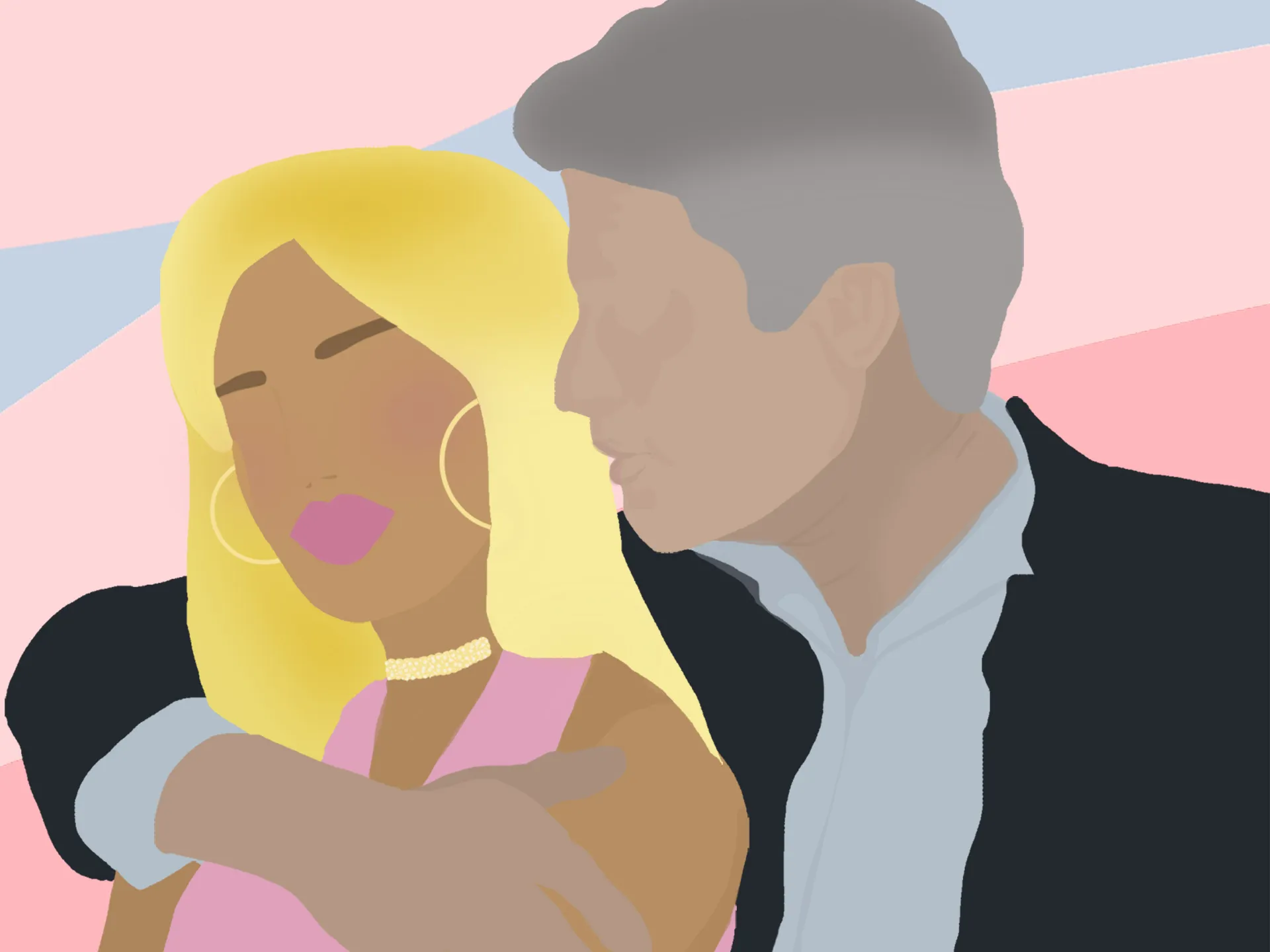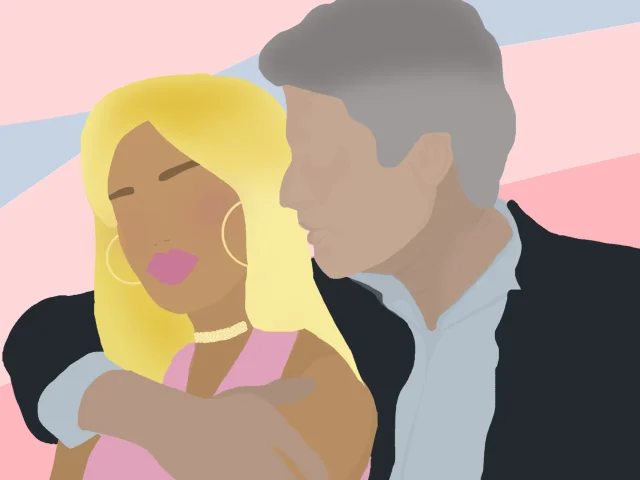
How media and popular culture normalized sugar daddy relationships despite the dangers of power imbalances and predatory behavior. Empowering women or exploiting them?
Sugar daddy culture is a phenomenon where an older and usually wealthy man enters into a romantic or sexual relationship with a younger woman, in exchange for financial support and/or lavish gifts. The younger woman is typically referred to as a sugar baby, and these relationships are often characterized by an imbalance of power and resources.
Unfortunately, sugar daddy dynamics has become increasingly prevalent in popular culture, with movies, TV shows, music, and social media all contributing to its normalization. In recent years, the mainstream media has showcased sugar daddy relationships in a more positive light, often presenting them as a glamorous lifestyle choice. This has resulted in the gradual acceptance of sugar daddy culture as a valid form of relationship, leading to a surge in the number of people joining sugar daddy dating sites and engaging in such relationships. The prevalence of sugar daddy culture in popular culture is concerning because it romanticizes the exchange of money for companionship, and ultimately perpetuates an unequal power dynamic in relationships.
The portrayal of sugar daddy culture in movies and TV shows
In recent years, sugar daddies has been featured in several popular TV shows and movies, often portraying sugar daddy relationships as glamorous, desirable, and acceptable. Some of these shows include “Selling Sunset,” “The Real Housewives,” and “Billions,” while movies such as “The Wolf of Wall Street,” “Pretty Woman,” and “The Great Gatsby” also showcase sugar daddy relationships.
These portrayals have a significant impact on societal perceptions of sugar daddy culture. By romanticizing sugar daddy relationships and depicting them as a valid lifestyle choice, popular culture has normalized the exchange of money for companionship. These representations often present the sugar daddy as a charming and successful man, while portraying the sugar baby as a desirable and ambitious woman.
The media’s portrayal of sugar daddy relationships has influenced society’s attitudes towards the phenomenon, with some people viewing it as a legitimate way to attain financial security and a lavish lifestyle. Additionally, some may feel pressure to enter into such dynamics as they are portrayed as a socially acceptable option. However, the reality is that these portrayals often fail to highlight the inherent power imbalance in these relationships, which can lead to exploitation and abuse.
The impact of social media on sugar daddy culture
Social media has played a significant role in the rise of sugar daddy paradigms. Platforms like Instagram, TikTok, and Twitter have become popular venues for sugar daddy dating sites to promote their services and attract new users. These sites often use targeted ads and influencer marketing strategies to promote their services to young women, promoting the idea of a lavish lifestyle that comes with having a sugar daddy.
Social media influencers have also played a role in promoting sugar daddy sites. Some influencers openly discuss their experiences as sugar babies and promote these relationships as a way to achieve financial independence and a luxurious lifestyle. They often use hashtags like #sugardaddy or #sugarbaby to attract followers and share their experiences. By promoting them here on such websites, influencers are normalizing sugar daddy relationships and encouraging young people to view them as a legitimate option for achieving financial stability.
The impact of social media on sugar daddy dating has been significant, as it has made it easier for individuals to connect with potential sugar daddies or sugar babies. However, it is important to note that social media’s promotion of sugar daddy’s and sugar babies can also have harmful consequences. Young people who are lured into sugar daddy relationships through social media may find themselves in situations where they are exploited or abused. As such, it is crucial to be mindful of the messages being promoted on social media and to understand the potential risks of engaging in sugar daddy relationships.
The normalization of sugar daddy dating in music
Sugar daddy culture has also become a common theme in popular music, with many artists using lyrics that promote and normalize these relationships. Some popular songs that feature sugar daddy culture include “Rich Girl” by Gwen Stefani, “Money Longer” by Lil Uzi Vert, and “Sugar Daddy” by Qveen Herby.
In many of these songs, sugar daddy relationships are portrayed as a means to attain wealth, luxury, and a comfortable lifestyle. The lyrics often present the sugar daddy as a wealthy, powerful man who can provide for his sugar baby’s every need. These songs tend to romanticize the exchange of money for companionship and suggest that it is a desirable lifestyle choice.
The normalization of sugar daddy relationships in music has a significant influence on shaping the attitudes of young people towards these relationships. Young people often look up to musicians as role models, and the messages conveyed in their music can have a profound impact on their perceptions of social norms. By promoting sugar daddy culture in their music, musicians are normalizing these relationships and encouraging young people to view them as a viable option for achieving financial security and a glamorous lifestyle.
It is crucial to understand that the normalization of sugar daddy culture in music can have harmful consequences, as it perpetuates an unequal power dynamic in relationships and can lead to exploitation and abuse. Young people need to be aware of the messages being conveyed in the music they listen to and to be mindful of the potential risks of engaging in sugar daddy relationships.

Conclusion
In conclusion, this article has highlighted how popular culture has been promoting sugar daddy dating, and the impact it has had on shaping societal perceptions of these relationships. We have discussed how movies, TV shows, social media, and music have all contributed to the normalization of rich older men dating younger potentially vulnerable women, portraying these relationships as a glamorous lifestyle choice and perpetuating an unequal power dynamic in relationships.
It is essential to understand that the normalization of sugar daddy culture in popular culture can have harmful consequences, such as exploitation and abuse. It is crucial for individuals to be more conscious of the messages they consume from popular culture, understand the potential risks of engaging in sugar daddy relationships, and be mindful of the power dynamics involved in such relationships.
We need to shift our societal attitudes towards sugar daddy culture and recognize that these relationships are not a legitimate way to attain financial security or a luxurious lifestyle. It is crucial to promote healthy and equal relationships that are based on mutual respect and understanding. By doing so, we can help individuals make informed decisions about their relationships and prevent the normalization of exploitative power dynamics.







